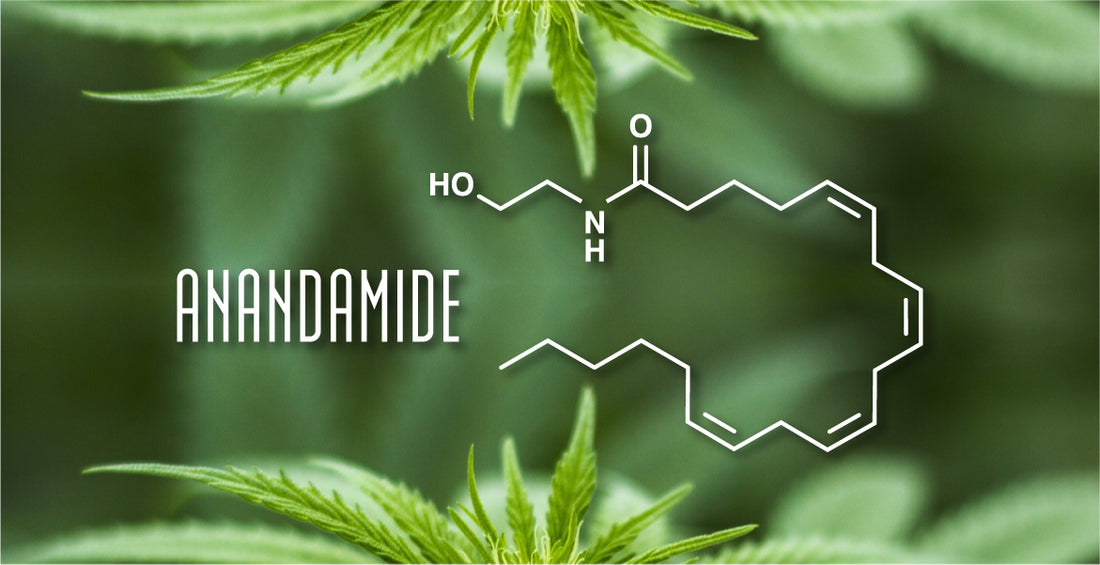
Anandamide is everyone's natural cannabinoid.

Context:
In the late 1980s, receptors for the main psychoactive component of cannabis (THC) were discovered in the brain. It is known from practice that THC does not occur naturally in the body, so the existence of these receptors in the human brain puzzled scientists. After a few months the mystery was solved, arachidonylethanolamide was discovered in the brain, which was later named anandamide.
Anandamide is a neurotransmitter produced by the brain that binds to CB1 cannabinoid receptors. It was soon discovered that anandamide is able to create not only a feeling of happiness, but also has many other beneficial properties for the human body. It is synthesized in those areas of the brain that are responsible for memory, critical thinking and movement. Anandamide plays an important role in regulating pain, appetite, and fertility. It also prevents the proliferation of cancer cells. By increasing neurogenesis, the production of new nerve cells, anandamide appears to have anti-anxiety and anti-depressant properties. Anandamide, like all neurotransmitters, is fragile and breaks down quickly in the body, so it does not cause a permanent state of euphoria.
How does anandamide relate to cannabis and memory?
Dr. Gary L. Wenk is better known as a leading expert on chronic brain inflammation and Alzheimer's disease. For years, he researched whether smoking cannabis could prevent memory loss caused by normal aging and Alzheimer's disease. He was surprised to learn that cannabis can protect against memory loss that occurs with aging.

However, it is worth noting that this article deals with cannabis that contains THC. This is not the case with CBD-only cannabis, which has protective and calming properties.
According to Dr. Wenk, the high number of anandamide receptors indicates the importance of the neurotransmitter in regulating brain activity. He discovered that by stimulating the brain's cannabinoid receptors, the brain could be protected. He says that cannabis has indisputable benefits for the elderly. "We generally don't think of cannabis as good for our brain, and especially for memory," Wenk points out. "How could a drug that clearly impairs the memory of affected people protect the brain from the effects of aging?"
The answer has to do with the functioning of young and old brains and the chemical changes that occur over time. At a young age, we influence the formation of new memories by stimulating the brain's cannabinoid receptors, but later the brain gradually shows more and more signs of inflammation, resulting in a dramatic decrease in the number of new neurons that are important for the formation of new memories.
Another factor that determines whether cannabis has a positive or negative effect on memory is dosage. It takes very little cannabis to improve the memory of an old brain. Dr. Wenk's colleague summed it up with the phrase, "one smoke is all it takes," because that's all it takes to improve memory in older people.
